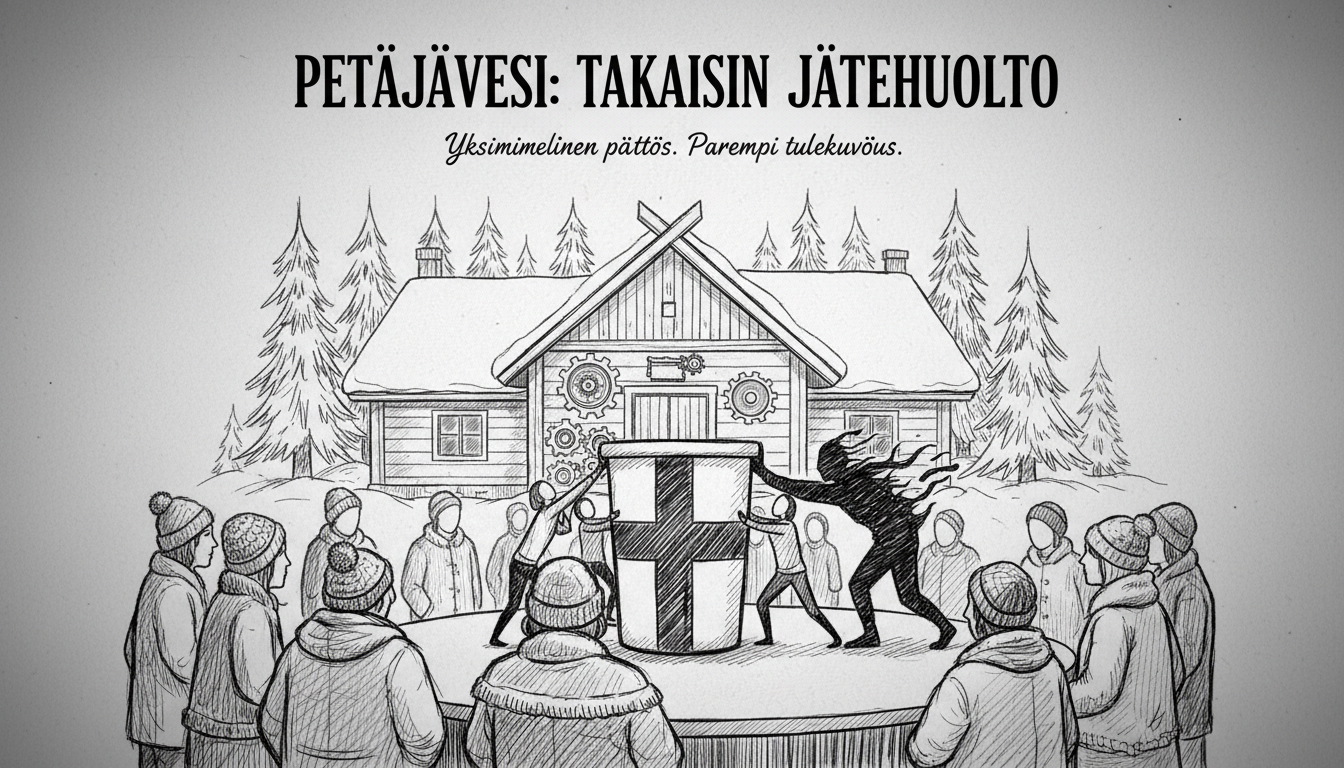Petäjävesi municipality in Central Finland will bring waste management services back under direct municipal control. The local council made this decision unanimously during their latest meeting. This move ends their partnership with waste management company Sammakkokangas.
The decision follows three years of planning and a major council initiative. Residents had expressed dissatisfaction with current waste services. They raised concerns about service quality and pricing structures.
Municipal officials conducted extensive external research before making the final determination. They also consulted with Sysmä municipality, which underwent a similar transition recently. Sysmä successfully separated from waste company Lahti region's Salpakierto Oy.
Council Chairman Mikko Tiirola explained the thorough process. "We have held numerous seminars on this topic," he said in a statement. "The new council decided in June that we would make the final decision this year."
This shift represents a growing trend among Finnish municipalities reevaluating public service delivery. Many local governments are reconsidering whether to maintain private partnerships or return services to direct municipal management.
Municipal waste management in Finland operates within a complex framework of national and EU regulations. Local governments bear responsibility for organizing waste services while complying with environmental targets. The Finnish waste management system emphasizes recycling and reducing landfill use.
For Petäjävesi residents, the change means local government will have direct oversight of waste collection and processing. Municipal control typically allows for more responsive service adjustments and potentially more stable pricing. The transition period will require careful coordination to ensure uninterrupted service.
Similar municipal service transitions in Finland have shown mixed results. Some communities achieve cost savings and improved service quality. Others face initial challenges during the transfer of operations and responsibilities.
The decision reflects broader discussions about public service delivery models across Nordic countries. Municipalities increasingly weigh the benefits of private efficiency against public accountability and control. This case will provide valuable insights for other Finnish communities considering similar changes.
What happens next? Petäjävesi officials must now develop a detailed implementation plan. They need to establish municipal waste management operations and hire necessary staff. The transition timeline remains unclear but will likely occur within the coming months.
